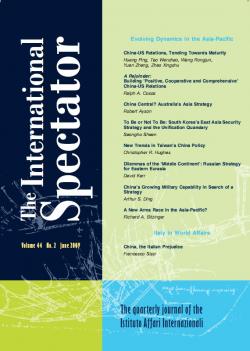The International Spectator, Vol. 44, No. 4, December 2009

Sezione speciale su Obama, One Year On e The Sustainability of De Facto States
New Potential for US-India Relations under Obama [3] Free
Recent Publications [4] Free
-
In:
-
Numero
44/4
